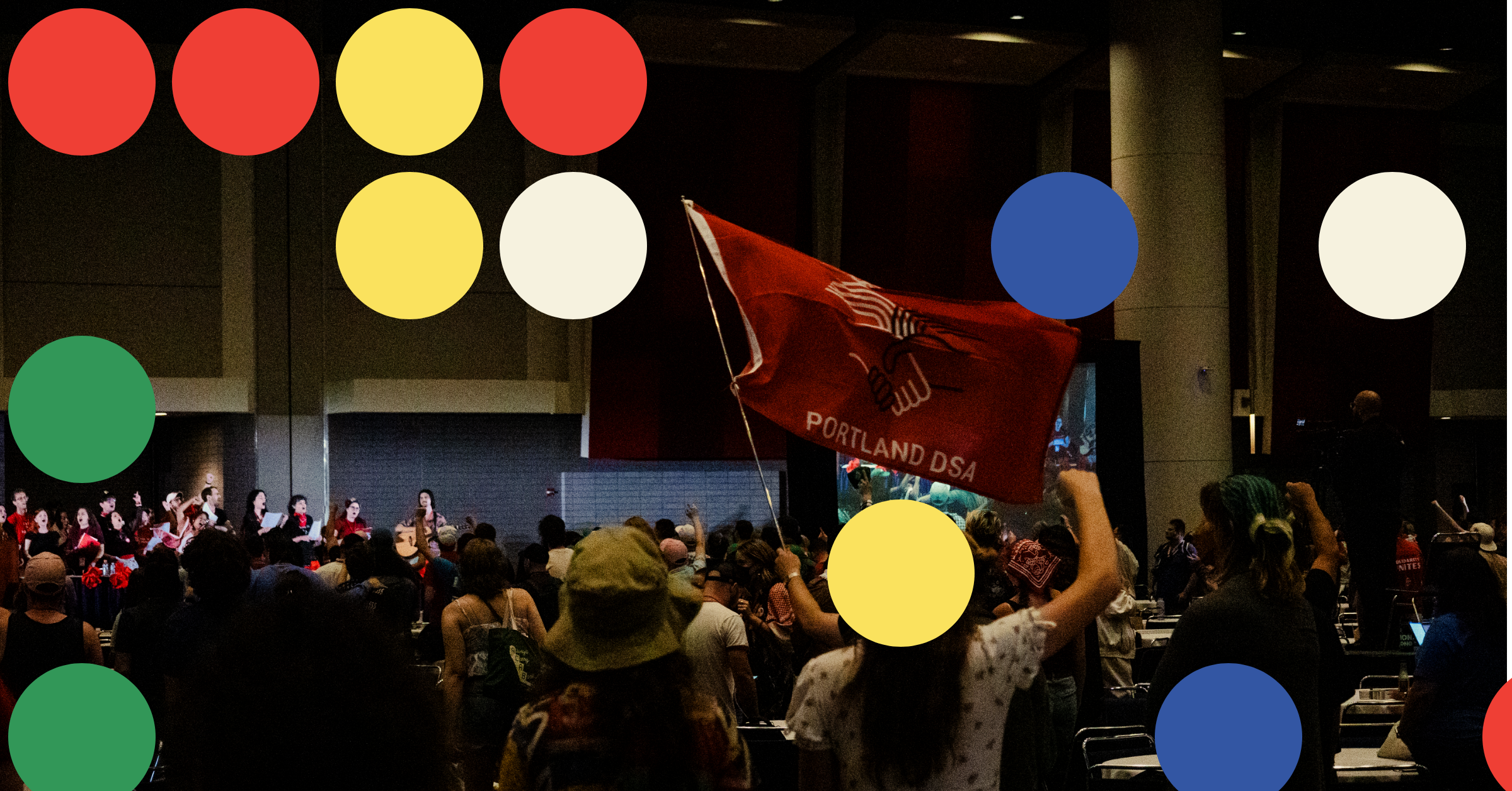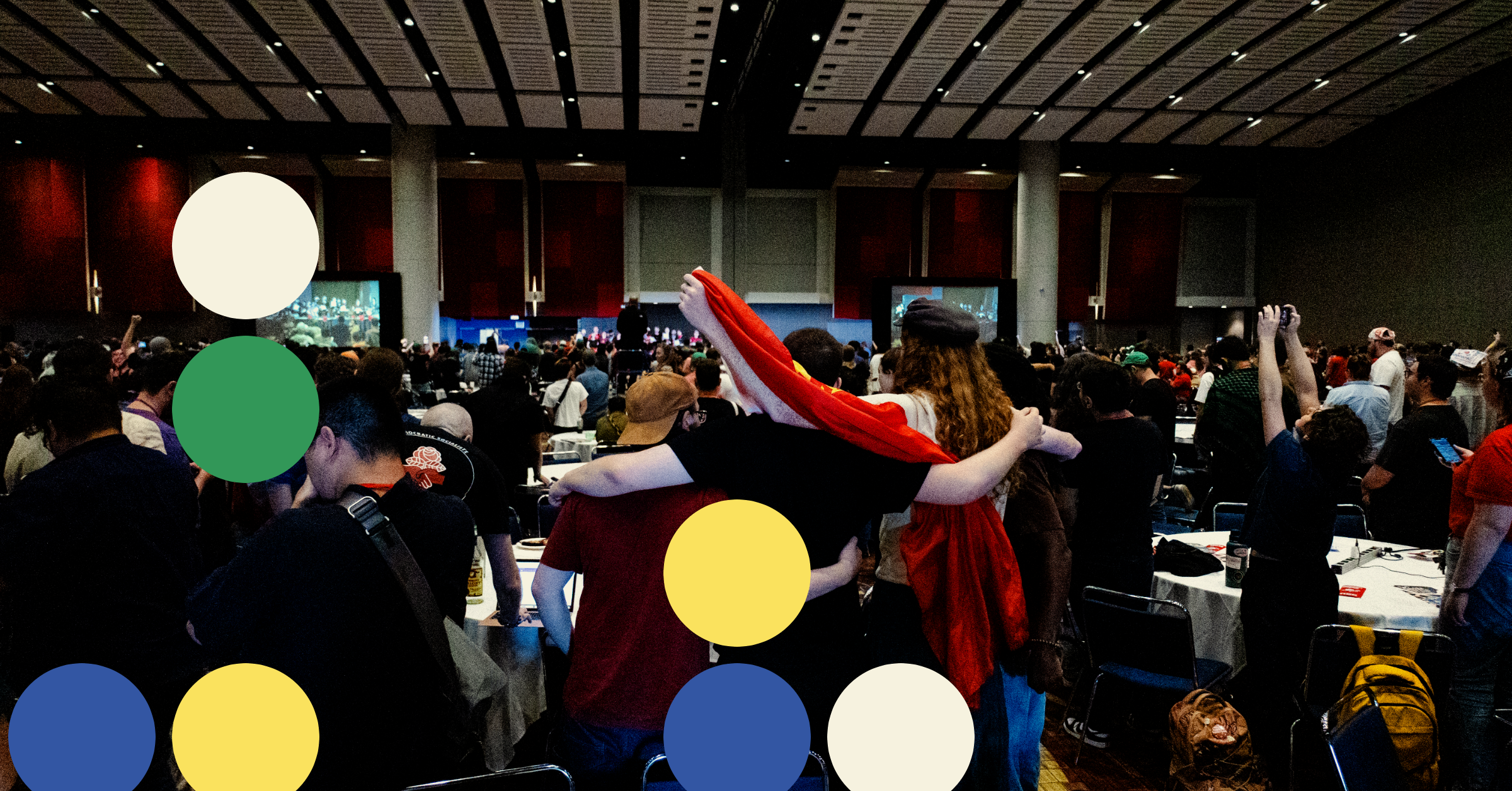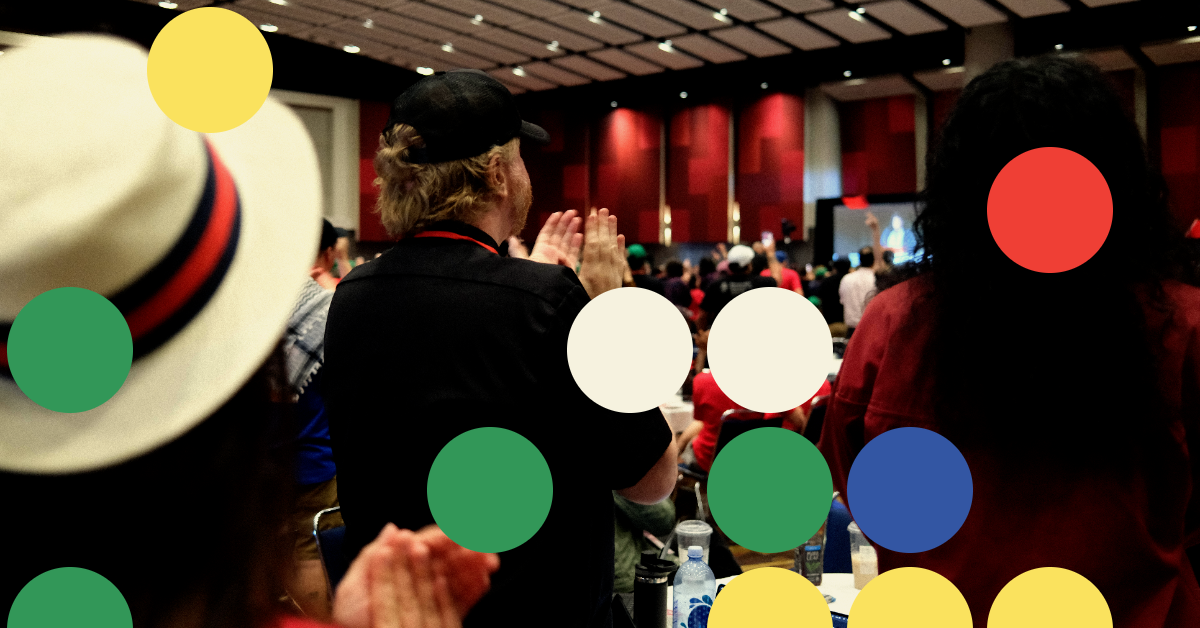There is no magic number of votes, best voting system, or a perfect convention agenda that makes a DSA chapter democratic. These are very important aspects of democracy, but at its core, for a chapter’s democracy to be effective, its members must feel they can impact its political direction.
Members’ perceived ability to influence the direction of a chapter comes not just from how frequently they are voting on campaigns, leaders, or endorsements, or whether they’re able to get on stack at conventions. They also must feel their political arguments can be earnestly heard and considered.
To earnestly hear an idea, especially those about which our first instinct is to disagree, we must be open to the thought that we ourselves are wrong. Earnestly listening to an idea or criticism is not about allotted speaking time — it is about a way of thinking. I have seen many organizers assume that a particular strategy, type of campaign, or tactic should be the norm for a chapter because it has been successfully used in the past. But with each new campaign or endorsement, we should interrogate our past experiences and make political arguments for the orientation and goals of that project.
When we always assume our own organizing strategy is the correct one, it makes it much more difficult to be open to alternative viewpoints or dissenting thoughts and this can lead to breakdowns in democracy. If someone starts off with the assumption that their political orientation is correct, attempts to deviate from that view often aren’t seen just as dissenting opinions but as dangerous to the socialist movement itself, because they move us away from the best path. It can then be very easy to see people who don’t subscribe to our views not as political minorities but as “unserious” and “inexperienced.’
If we have this belief about our political opponents, limiting their political participation becomes synonymous with preserving our chapter. This line of thinking can lead to political debate being seen not as healthy but as an inconvenience. Democratic processes can become a formality. This can naturally lead to chapter members feeling that they can’t be earnestly heard or have their ideas genuinely considered.
The operative word in this argument is “assumption.” I have deeply held beliefs about what the socialist movement should do and I have been very frustrated by those who disagree with me. I’ve definitely had times where I believe certain political arguments that I’ve heard are unserious, stem from inexperience, or will lead us in the wrong direction. But I do my best to avoid assuming my position is right; rather, I view it as my responsibility to win people over to my side through political arguments each time a political decision needs to be made.
Look to the Losers and the Leaders
It’s easy to think that a chapter is democratic when your politics are hegemonic. But to truly assess how democratic and healthy a chapter is, we should look to those in the political minority. When they lose a vote, the political minority may feel deeply frustrated, upset, or even heartbroken — I definitely have — but it is important to assess whether or not they feel the vote was democratic. If they felt their political arguments were earnestly heard, and if they were given a fair opportunity to make their point but did not convince enough people, then that is an indication a chapter is democratic. But if the reason they’re so bitter about their loss is that they feel there was not enough democracy, then that’s a sign there needs to be change.
No one will ever be 100% satisfied with democracy in a chapter and sometimes it can be easier to believe a decision was undemocratic rather than that your belief was unpopular, but we must assume good faith with our comrades. A few isolated cries about the lack of democracy should always be expected, but if we see significant portions of a chapter, 10%, 15%, 25% of active members claiming they don’t feel that a chapter is democratic, that is an indication that something is wrong. As DSA leaders, we are in a constant balancing act, of pushing for our own political vision while also ensuring that our chapter remains healthy and democratic. Sometimes this means empowering people to lay out a vision that you disagree with. Other times this means taking seriously a critique that you don’t agree with. This balancing act is one of the hardest aspects of political leadership.
However, as leaders, we should measure the democratic health of a chapter through political participation. For example, if 75% of a chapter’s active membership subscribes to the beliefs of one political faction and 25% belong to an opposing one, then there should be robust political debate within the chapter. If the majority faction puts forward a proposal at a convention or general meeting, at least 25% of the speakers should be opposed. The absence of political disagreement does not necessarily equal consensus. Uncompetitive elections, short stack lists for controversial topics, or consistent nearly unanimous votes should be huge red flags for chapter leaders. In an organization with as many viewpoints as DSA, it often means that members are not sharing their disagreements.
Of course chapter leaders can only do so much: you can’t force members to share their political opinions. Sometimes people’s politics are simply out of step with the politics of the organization, and another organizing setting may be a better fit for them. But we have a responsibility as leaders to ensure that people still feel good about democracy in DSA after every contentious vote.
What Is Our Responsibility?
While the leaders of DSA have a unique responsibility to ensure chapter democracy, democracy ultimately must be practiced by every member. At the recent 2024 NYC-DSA convention, I motivated one amendment and one procedural motion. I attempted to amend an electoral strategy resolution to say that a goal of our electoral work is to break from the Democrats to form an independent party. It failed 44% to 56%.
I also made a motion to divide the question on a resolution titled “For An Anti-Zionist NYC,” which would have meant voting on different clauses of the resolution separately. I did this both because my caucus supported some parts of the resolution and not others and because I believed passing certain parts was more consistent with the consensus of the room. The motion to divide the question failed miserably; roughly 5% voted yes. Even though both my motions failed, which I expected (although I was pleasantly surprised at how well my electoral politics amendment did), I don’t regret making them and don’t think that discussing them was a waste of time.
I felt it was important to bring forward a viewpoint that I knew had a base of support in the chapter but was not being represented at our convention. I believe having that political debate and questioning our current strategies is healthy for our organization. Even though I deeply disagree with many of the comrades who voted against my motions, I don’t question that they did so with the best intentions.
We have an obligation not to respond to clear political arguments with overly moralistic ones — that’s a surefire way to shut down political debate. Debates within DSA should be centered around the strategy and tactics of the socialist movement, not moralistic arguments. People who disagree with me on electoral politics still want to put socialists in office and most of them probably want to break from the Democrats, but they just have a different path in mind for achieving that goal than I do. Someone who supports a different strategy for ending the genocide in Gaza does not care about the people in Palestine less than I do, or vice versa. It’s not possible to have a productive discussion when debates about political strategy are met with moralistic arguments. How can we as socialists debate our strategy and tactics if there isn’t a predetermined understanding that those who we are debating with 1) share our same overall goals, 2) agree with our most foundational beliefs and, 3) on a basic level, that we care about each other as comrades?
As DSA members we have a responsibility to bring forward our politics even if they are unpopular. But we also have a responsibility to earnestly and seriously consider opposing viewpoints. This means creating a culture that members feel is democratic and where they feel they can impact the political direction of the chapter by responding to political arguments with counter arguments, not dismissiveness, arguments based in emotion, or ad hominem attacks.
We spend a lot of time debating the technical aspects of democracy: voting systems, meeting frequency, hybrid options. These are vitally important, but they alone do not help create a democratic chapter. Democracy is about creating a culture where everyone believes they can help build DSA even if individual votes don’t go their way.




